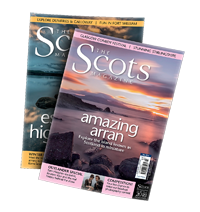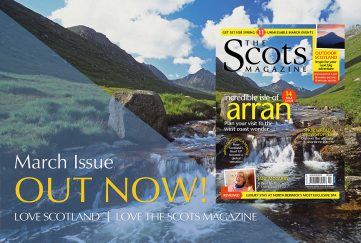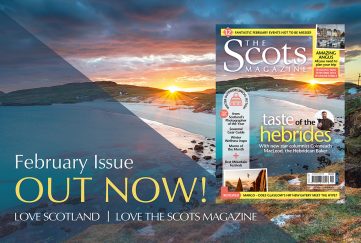Remembering Maurice Fleming
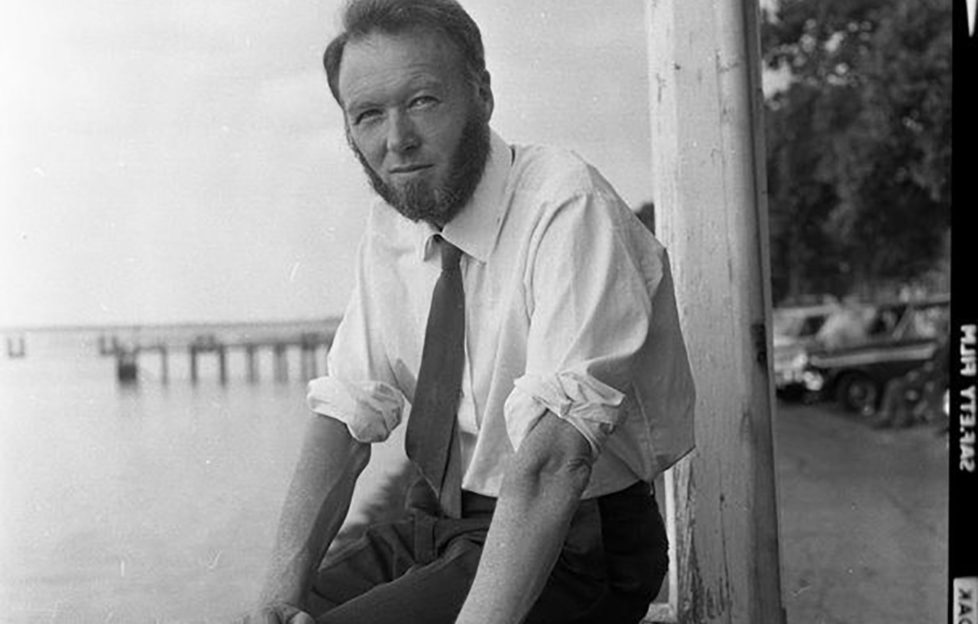
The Scots Magazine team take a moment to remember the late Maurice Fleming, Editor of The Scots Magazine from 1975 to 1991
We take a look back at the life’s work of Maurice Fleming who sadly passed away this year.
Maurice was born in Blairgowrie and spent 27 years working on The Scots Magazine, 16 of which were as the Editor. He was, in fact, at the helm of the magazine when it celebrated its incredible 250th anniversary in 1989.
While editor, Maurice introduced a number of new features, guided the magazine through the arrival of new technologies within the publishing world, and made a number of professional friendships with various Scottish writers.
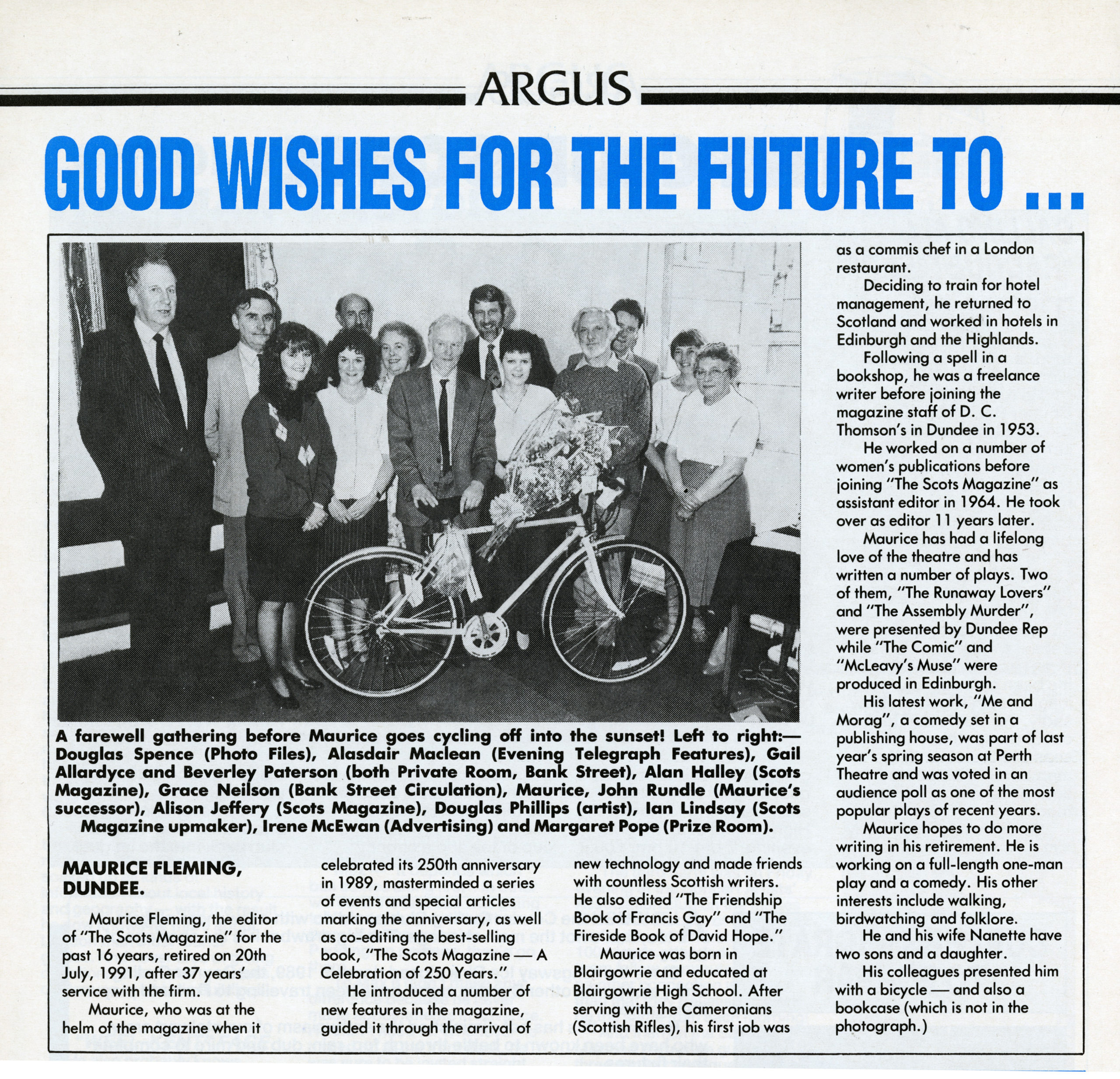
Maurice Fleming’s retirement tribute
Maurice always had a passion for Scotland and the great outdoors, therefore, becoming the editor of The Scots Magazine was a natural fit. In the following excerpt from an online article, Maurice wrote fondly about his time at The Scots Magazine and the writing career he enjoyed post-retirement, which he filled with books about Scotland:
“In my twenty-seven years on The Scots Magazine, ten as assistant and the rest as editor, I wrote many articles and features. At the same time I was coaxing and cajoling work out of writers new and established, and shaping up one monthly issue after another.
“I enjoyed it all, but throughout those years I felt a gnawing hunger to write something for myself, something that would not be forgotten by the end of the month. It’s a common condition among journalists trapped by deadlines.
“Like all the others, I carried books in my head. Now and again an idea got me so fired up that I did a draft. I discussed projects with publishers and had more than one offer of a contract. But when it came to it, the treadmill won; I could not give these projects the concentration they required. And, on a personal note, my wife Nanette thought I was already married to the Scots Magazine. I dared not take on a mistress as well.
“I satisfied the hunger to some extent by writing plays, which I found relaxing because I could pick up the dialogue and leave it without worrying about what came next. The characters simply ‘froze’ and waited for me to start them talking again. ‘When I retire I’ll have time to write books,’ I told myself.” – article in full >>
And Maurice did go on to write books, mostly still inspired by the Scottish landscape, the Scottish myths and legend, and the Scottish people. The Sidlaws, this most popular release, was hugely inspired by his previous work and connections.
“The nucleus of the material was already to hand, stowed away in my filing cabinet. Back in the 1950s, at the urging of Hamish Henderson, I became a ‘scout’ for the School of Scottish Studies.
“With a tape recorder and a bicycle, I tracked down singers and storytellers. I recorded some of the travelling people who came to the Perthshire berry fields every July, and others who had settled in the district.
“I was really inspired by the magical power of their traditional lore, but reluctantly I filed away all my notes; when I was researching my first book on folklore I opened the filing cabinet and immersed myself in these wonderful tales all over again.”
For the book he spent countless hours researching old newspapers and documents, to create a book which tells the tales of great houses such as Glamis to the spirits of the stones and the heather. A large proportion of the tales have a supernatural element, giving accounts of fairies, kelpies, brownies, witches, warlocks, serpents and the Devil himself.
His early life and work

Marice’s early life and career are also best captured in his own beautiful words in this uncovered Courier clipping from 2014 entitled, Hello Me: “In my hand I’m clutching my precious binoculars which I saved up to buy out of my pocket money and carry everywhere, for I am already a keen birdwatcher. It was about this time I decided I wanted to be a nature writer.
“Later, I gave up the idea because I thought there were far too many author-naturalists — H. Mortimer Batten, Seton Gordon, F. Fraser Darling and lots of others. It never dawned on me that by the time I got started they would be on the way out.
“So I would say to that young dreamer: ‘hold on to your ambition, look to the long term — there are all sorts of ways you can one day make it happen.’
“Not that I regret the course my life took instead. It has been far more interesting and varied than I had expected, taking me from the Perthshire woods to London, Edinburgh and the Highlands, even on an abortive attempt to find a job in Paris (with my mangled French, that was always going to be a non-starter).
“In those other places, I worked in hotels and restaurants, and as a bookshop assistant. I finally touched down in Dundee, in DC Thomson’s magazines department where I worked on several publications before joining the one I wanted to be on: The Scots Magazine.
“Throughout all my vagaries I always found time to enjoy and observe birds and now and again write about them amongst a host of other subjects. Since I retired from full-time journalism I have produced some books and this year I am working on memories of my boyhood, so I have been feeling very close to that young lad sitting outside his tent, full of the joys on that long ago summer’s day. In his diary at that time he jotted down the birds he saw every day but
“I wish I could whisper in his ear and urge him to record a lot more of what was going on around him: the countryside, the town, the wildlife, the way people live.
“And I would advise him: ‘Take lots of photographs, of people and places. You will treasure them in years to come.’
Above all, I would say to my young self: ‘Make the most of your freedom. Boys who will come after you will not be so free to wander the fields and woods, sleep out, cycle for miles on quiet roads and have the adventures you do. Make the most of every day.’
“Which, come to think of it, is good advice at any age.”
Maurice Femling passed away peacefully at Blairgowrie Cottage Hospital August 29, 2020. Beloved husband of the late Nanette and dear father of Gavin, David and Airlie.

